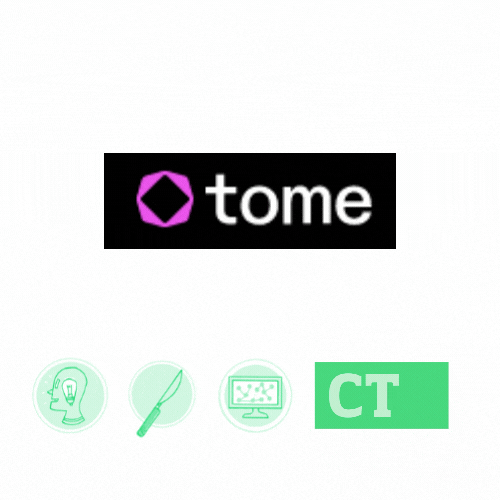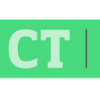A version of this post originally appeared in the July 2, 2020 issue with the email subject line "Are digital marketing and ad agencies actually apolitical?"
How to break last decade’s Faustian bargain
Here’s the story of a stylish household brand in the 2010s. The brand has never had much of a stance on politics; it’s always been merely beautiful. It sells timelessly attractive products for the ever-declining upper middle-class market.
The brand said, “We don’t want our customers feeling like they’re being followed around. Those ads that follow us around on the internet creep us out.”
The digital marketing agency responded with ambitious cheer, “How about we test it? You’ll see how well remarketing works.”
The agency did the test. The brand saw the data and nodded vigorously. What they lost in integrity they gained in scale.
Here we are today, still drowning in a sea of banner ads that users never really do get used to. ROI kills ethics and design every time.
Questioning the apolitical middleman
If you worked at or around a digital marketing or advertising agency in the past decade, you heard the conversation above. If it wasn’t about remarketing, it was about programmatic or social video or OTT or the next brand new toy.
Over the past decade, marketing and advertising agencies have pushed brands toward new digital advertising channels, throwing money at Facebook, Google and display networks and waving good results at clients. They developed specialists in paid and organic content and advertising distribution software and raked in lots of money along the way.
Advertising and marketing maintains a reputation for being apolitical, a place where (in my experience, mostly left-of-center) people can work on creative and tech projects, fun commercials, neat little experiments. After all, agencies are conduits for their clients, expertly dealing with the intricacies of digital advertising and creative so their clients don’t have to waste time or money on experimentation.
So why is the Facebook boycott solely led by brands and not the expert agencies who convinced those brands to get into Facebook marketing in the first place?
Why have only a handful of advertising and marketing agencies in the Twin Cities even bothered to write a social post stating solidarity with Black Lives Matter after the murder of George Floyd?
Why are agencies still maintaining the illusion of being “politics-free” places to work when their main clients are doing this?
BREAKING: Pharmaceutical industry group sues to stop Minnesota's new insulin aid program. https://t.co/PcWG1ulYiW
— Star Tribune (@StarTribune) July 1, 2020
Although individual employees at agencies may believe in Black Lives Matter, may be out on the streets protesting, their employers solicit and earn from companies that actively exacerbate inequality in the system.
I don’t know a single major ad agency who wouldn’t be chuffed if a big pharma company came knocking at their door for some paid social content or an SEO plan. Pharma means steady work, easy money, long-term projects that keep people employed.
Workers at agencies are experts in finding the good in both their clients and their vendors. They learn about all the new cool tools that Facebook, Google and other ad tech vendors release to maximize profit in the new digital landscape. They use that knowledge to enable their clients — pharmaceutical companies, for-profit healthcare, for-profit education, banks, meat processing, health insurance, and other massive businesses — to mine systemic inequality and amass wealth.
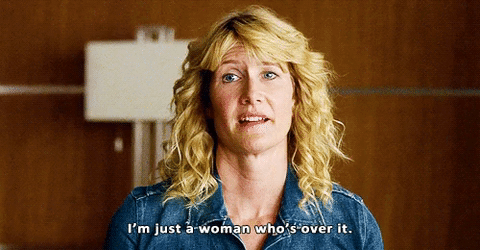
If you work in advertising and marketing, it’s time to step back and think deeply about where and how you are complicit. It’s time to use your creativity to imagine the impact these actions are having on the world as a whole.
Like the mad scientist consultancies McKinsey, Deloitte, et al, advertising and marketing agencies control a significant percentage of the public mindshare on taste and acceptability.
If you’re in power in a client services business, take a deep breath and consider where your clients’ and your vendors’ money comes from. Is it worth it? How can we do better?
Why we work in marketing and advertising
Marketing and advertising enables creative people to get paid for making things, to get promotions for understanding new technology. It’s a prime environment for the winner-take-all straight-A kids, seething with ambition, to mingle with the growth hackers and shortcut-seekers. It’s a winning combination that brings out the real motherfucker in all of us.
Working at an agency:
- Pays better than media companies, with the tech industry cash runoff enabling workers to make a living wage immediately after college (imagine that)
- Is more engaging and fast-moving than brand-side work, with more opportunity for promotion that at a legacy company
- Fosters an environment of curiosity and education for learning new technology
- Combines creative and analytical people in a somewhat cross-discipline and generally fun environment (Life is a lot easier when you like your coworkers/clients and the office is pleasant.)
- Has power! Business leaders listen to your cool creative problem-solving and sometimes use your ideas, and it is satisfying to be paid to have someone listen to you.
Generally, marketing and advertising seems ethical. You’re helping creative people get paid for their content! You’re helping clients run more efficient businesses so they can one day give back!
But at the end of the day, most agency employees are too tired to think twice about ethics.
How agencies profit from exhaustion
Marketing and advertising agencies are notorious for overbooking client work, so that they only profit when salaried employees are working 50-60 hour weeks. Discussing ethical considerations — like privacy, sexism, racism, or clients behaving badly in the news — slows work down.
Agency life depends on tracking every last minute of your time and assigning it to a client. As an ops person and a freelancer, I’m pro-time tracking because it helps make realistic work schedules and set fair rates.
But at agencies, leadership can use time-tracking to scrutinize every minute that is not spent productively. They will redirect your time if they feel it’s spent exploring the wrong things.
Even agencies that do not subscribe to the ROI-wins-all ethos of “growth hacking” overbook workers to maintain competitive rates. It’s only when several workers are working to the point of exhaustion that a new hire is made.
This system rewards those who are willing to give their whole lives to their job, the child-free and ruthless. It rewards people who have few other interests besides the occasional rock show or theater performance.
The pace is still going, even after COVID. When COVID hit, agencies rushed to create ads and encouraged brands to continue spending. People are still buying, they said, even when the holy grail of brand trust data said that maybe post-pandemic audiences should chill.
All the “good workplace” agencies vowed to keep a healthy work-life balance so and gave employees breathing room. They promised no more than 40 hours. Turns out that was temporary.
Despite the massive local civil rights movement, despite the fact that our country is massively ill-prepared for the incredibly dangerous “reopening” that’s disproportionately affecting Black, indigenous and immigrant communities, the hours agencies require have crept back up. Friends report that they and their partners are working 50-80 hour weeks, even without the added commute.
It’s woefully unsustainable.
The only ethics discussions that happen
No one in the agency world has ever seriously talked about ethics, either at the agencies themselves or at the many conferences I’ve attended over the past few years. The new digital channels were assumed to be apolitical, better for people because they were helping people find more information more quickly.
“Brand safety” was a discussion, especially when social movements like Black Lives Matter appeared after the murder of Michael Brown in 2014.
“Brand safety” was the discussion that agencies had. Keeping the brands safe. Not keeping the people safe.
Because some of the brands don’t keep people safe. Not the ones sending people to work in COVID-contaminated environments.
At the agencies I’ve worked for, none of the leadership sat ever down with the junior specialists in each algorithmic software to discuss what the ethics and potential social consequences of their Big Tech vendors.
And now we’re here.
To top it all off, we’re just making garbage
I think about the anecdote at the beginning of this email a lot. How remarketing happened.
Leadership at my agency told that story as a point of pride, that they had convinced the client to invest in invasive ad tech despite their concerns about their brand and privacy.
My dictionary classifies “remarketing” as a misspell, red underlines everywhere, even though it’s just the Google browser spellcheck and Google popularized the term all those years ago.
The old buzzwords power so much of our daily experiences. Not everyone I know would call the web experience “miserable” but I don’t think anyone would say “pleasant.”
I think about that anecdote especially when I go to a website that looks like this:
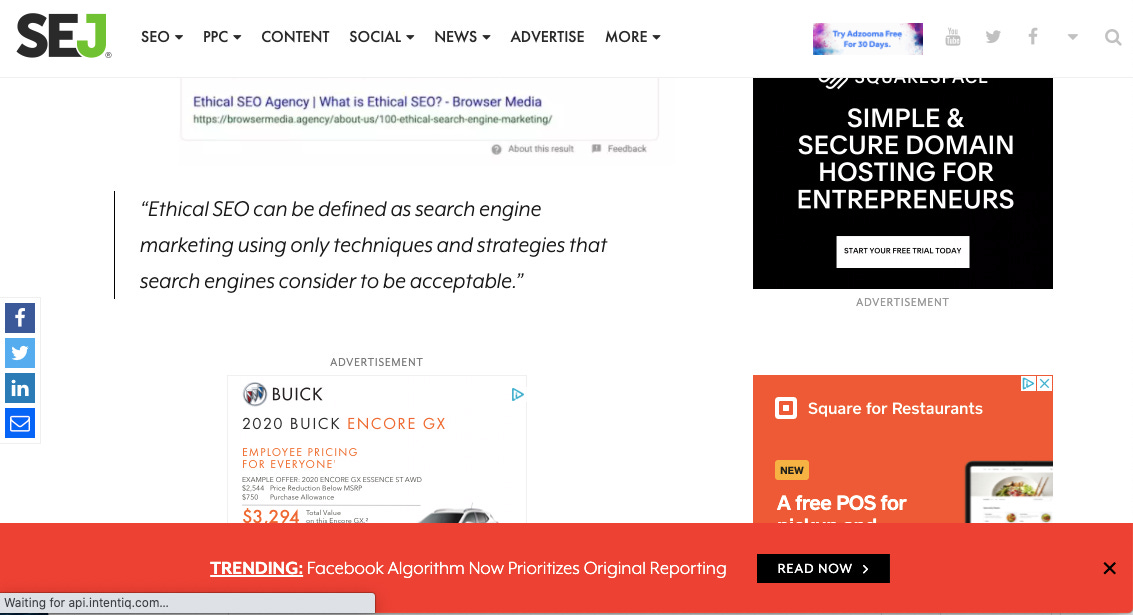
The content is, like, 20% of the page. There are three ads piled on top of each other! One is a link to other editorial content but is somehow also still an ad!
This is an industry website. I’m on it three times a week and I can barely read it.
When I go to news websites to research why insulin prices are so high, I see this:
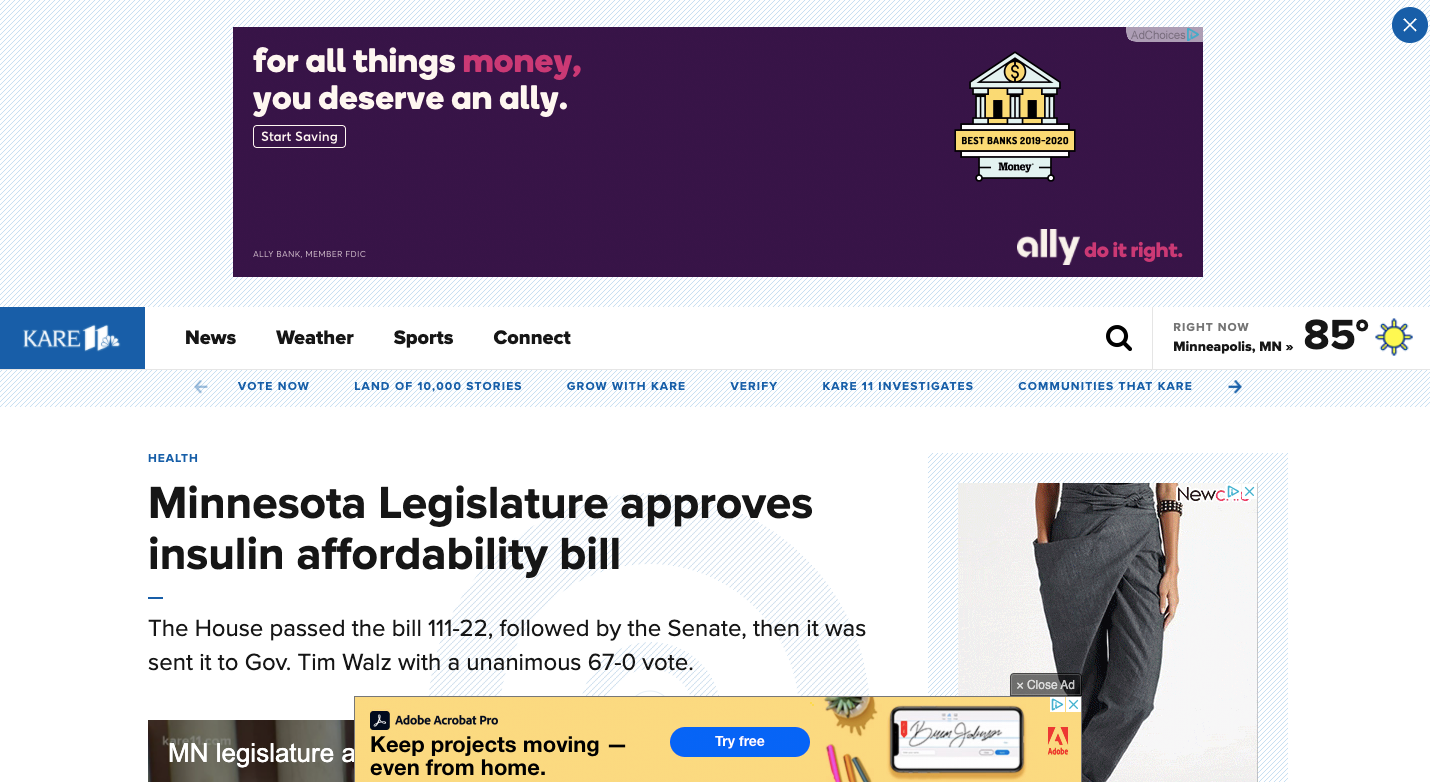
Giant, flashing ads for pants and software piled on top of each other, to say nothing about the auto-play preroll video ad. This is what our low rates, emotional exhaustion and unwavering support for the ad tech industry have created.
Not all ads are placed this way. Some play between pundits at Fox News or next to Bari Weiss editorials at the New York Times. Others sit just above your racist uncle on Facebook.
Some have better creative than others, good storytelling, attractive photography.
Doesn’t matter: it’s a flaming hot pile of bullshit, fed by misinformation and questionable surveillance practices.
If we actually care about design, let’s turn the dial back, not only for better aesthetics, but for a better experience overall.
But let’s not stop there. Let’s turn back further because even though media buying follows the audience wherever they go, the audience itself has politics. And hey look, what if those politics are hurting people. A lot of people.
The thing is, when you work at an agency, you don’t even really benefit from the surveillance! You just get more data to play with, to make visualizations from, but you aren’t actually following people around. You just push your clients in to use ad tech because it has reach, because it’s what’s new, because it will accomplish great things for that single revenue-driven KPI. And then your clients like you.
The garbage we’ve made is hurting people
Why does the agency world continue to take money from companies that actively seek to prevent access to medication and health care?
Back to PHRMA’s lawsuit above from above. A description from MPR:
The law — the Alec Smith Insulin Affordability Act — is named for a Richfield man who died in 2017 after rationing insulin to stretch out his supply when he couldn’t afford to buy new medicine.
It passed in Minnesota with bipartisan support. Everyone was happy because hey! The American system worked, and the 25% of people who ration insulin to avoid running out were going to have better access to healthcare. Some people are able to have a sigh of relief in the era of COVID-19.
Now pharma companies, likely your agency clients — not the individuals themselves, but a trade organization operating on behalf of the corporations they work for — are suing to limit access to lifesaving drugs.
I get it, because at an agency, you’re so many steps removed:
- Your client isn’t even in PhRMA, the trade group that’s suing. Your client is a major health insurance company, and you’re creating helpful content, which is providing tips for individuals who have diabetes to manage their lifestyle.
- You do not buy the actual ads for the industry. You just create and optimize them.
But when you take a step back from the exhaustion, you know it’s all part of the same machine. The money your client is paying your employer comes from the insurance company’s skim off the pharma industry’s price gouging.
You’re giving people digital content tips to manage their diabetes. Cool. But what would really help manage their diabetes is actual access to low-cost insulin that the government made available to them.
At the end of the day, your client is making it harder for people to get the medical care they need. The diabetes management tips are some kind of sick concession.
Agency employees: Show some solidarity
Always remember the cool thing about working at an agency: Sometimes people listen to your ideas. It’s definitely an environment more tolerant of conversation than, say, a pharmaceutical company or an oil and gas company.
Here are some things you can do:
- Join 600 and Rising.
- Educate your clients on the ethics of the media strategy they are using. Frame it in terms of brand safety if you have to, but advise them on participating in the Facebook boycott. Do what’s right for your clients and for society, even if it means they will be spending less money.
- Get used to the idea that maybe clients should spend less money because that’s what’s appropriate right now. Carpetbaggers are gross.
- Ask your employer to talk about ethics. Of technology. Of human rights. Of the neighborhoods you live and work in. Take time to begin discussions of ethics into SEO, SEM, paid social, advertising in general. What would make the industry more ethical?
- Make privacy and accessibility need-to-haves, not just add ons, to your company’s advertising and marketing services. If you don’t have privacy or accessibility experts at your workplace, hire or train some. If you don’t know about privacy or accessibility, start to learn.
- If you have very few employees of color at your agency, ask your employers why, directly. Especially if your company signed some kind of diversity pledge five years ago.
- If you disagree with your client’s business model, especially if they’re making news these days like for-profit pharmaceuticals or meat processing, tell your employer. Ask whether there are other ways to make the agency business work without their business.
- Do your part to slow the pace of productivity. Push back on unreasonable timelines and activities.
- If you’re child-free, be loud in solidarity with working parents, especially if you’re working more than you would be able to work if you had a child at home. Don’t “pick up the slack.” Slow it the fuck down.
- If a client wants you to do something unethical like buying followers or gaming an algorithm (happens all the time), ensure that your company will support you if you say no.
- Make a list of unethical digital marketing business practices. Name them and provide examples.
- Stop worrying about whether leadership will like you. Even if you are a brilliant creative brain, at the end of the day you represent productivity for your workplace and nothing more.
- Consider unionizing your workplace.
- If your company hasn’t publicly stated solidarity with Black Lives Matter, organize a walkout. They did it at Periscope.
- Fire your clients who harm our society.
- Don’t give money to vendors who actively court misinformation (aka Facebook).
- Consider other ways to use your creativity and love of tech to support yourself.
I believe in the power of tech as a democratizing force, as a way of communicating how the world is going to change. But large, powerful companies — and the agencies who are their gatekeepers — can’t be the only ones who have access to that technology or the creativity that powers the content behind it.
Let’s find some new models for agencies that don’t rely on others’ lack of ethics.
Hand-picked related content

